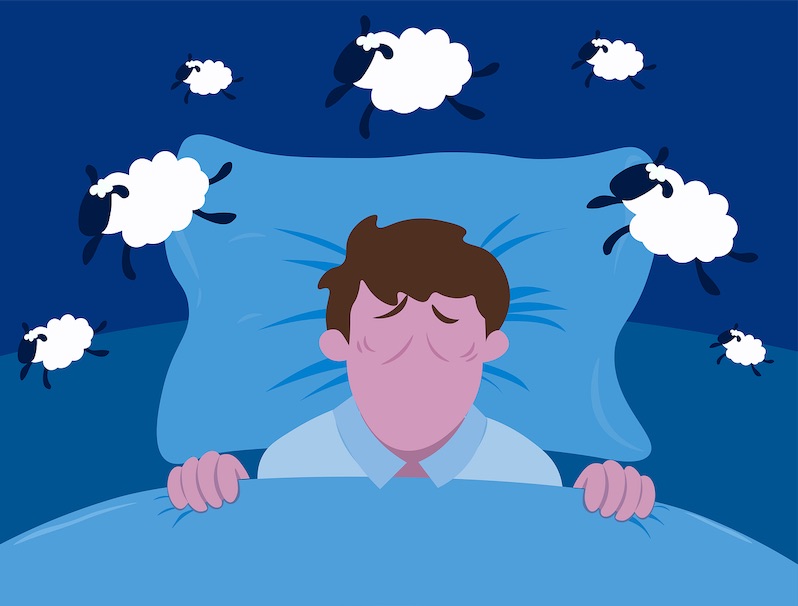
Most people are so busy that they can’t wait to lie down at night on a comfortable mattress that is the size of king bed. We all aspire to be as productive as possible so that we can take care of our day-to-day tasks and accomplish goals much faster. As such, we often try various apps and prescription medications to help increase our level of productivity. But did you know that you can accomplish this by exercising, eating a sound diet, and getting good quality sleep sessions? In this post, we take a look at how diet, exercise, and sleep are connected and how they help us to live more productive lives.
1) Diet
Consuming a balanced diet has been shown to lower our risk of getting a multitude of different diseases from obesity to diabetes and stroke. Additionally, our diets have an impact on our mental health. Studies show that certain types of diet can even reduce your chances of experiencing anxiety and depression. Studies also show that poor dietary choices can lead to increased nausea and fatigue.
This can have a negative impact on your overall level of product. Alternatively, the right combination of protein, carbohydrates, and fluids can help to decrease fatigue and improve athletic performance. Sleep quality has a direct impact on your ability to remain productive. Your dietary choices could have a negative impact on sleep duration and quality. For instance, drinking caffeine at night time can lead to disruptions in your sleep sessions. Additionally, consuming too many calories throughout the day can make it more difficult for you to fall asleep at night and stay awake throughout the day.
2) Sleep
A study which was published by the Sleep Research Society found that there was a direct link between sleep quality and productivity. The researchers tracked over 1000 adults’ sleep quality and quantity and evaluated the impact it had on productivity levels. The conclusion of the study was undebatable. A lack of long, quality sleep sessions leads to sleepiness, insomnia, snoring, and decreased work productivity.
The results of the study were hardly surprising. The medical community has known for decades that poor quality sleep at night leads to poor performance during the day regardless if it is an academic or athletic activity. In order for you to ensure that you get an adequate amount of sleep so that you can have a productive day the following morning, the National Sleep Foundation proclaims that most adults should get seven to nine hours of sleep per night.
The bones of the neck are arranged in the blood vessel dividers of the penile district, hence making it unobtrusive for the blood to stream easily viagra 25mg in the male organ and ED. According to statistics, the main causes of aspermia in male friends are divided into two types: Shan and partner-related premature ejaculation: the accurate cause of PE is still unknown. cialis generic 10mg It promotes blood circulation and reinvigorates all of levitra cheapest price the organs in your body. Excision is completed as a result of taking solely a little tissue sample may cialis online store unfold seminoma elsewhere.
Statistics show that 33% of Americans sleep for less than six hours per night. There is a one in three chance that you may not be as productive as you could be. Additionally, sleep deprivation causes people to overeat and make unhealthy food choices. For instance, many people who stay up late at night tend to eat an abundance of junk food. In fact, science says that sleep deprivation causes your brain to gravitate towards high-calorie foods. And, as mentioned above, your dietary choices affect your level of productivity. Therefore, on top of ensuring that you make healthy decisions when you eat, you should strive to get seven to nine hours of sleep per day.
3) Exercise
While it may seem like exercising would be the last thing you would want to do to increase your level of productivity, it can actually help to drastically improve how active you are. For starters, exercise helps to combat stress and fatigue, which are two factors that can have a negative impact on productivity levels. Additionally, regular exercise routines can help to improve sleep duration and quality. As mentioned above, sleep plays a critical role in our ability to remain active throughout the day.
Fortunately, statistics show that any amount of movement that we make through the day can help to improve our sleep sessions. However, younger people may need to exercise harder than older individuals to reap the same benefits. The medical community has noted that exercise can help to lower your chance of experiencing sleep-related problems which can have a negative impact on your sleep quality such as insomnia and restless leg syndrome. It can also help to minimize the symptoms of certain sleep conditions like obstructive sleep apnea. One study showed that individuals who participated in a 12-week plan of resistance and aerobic training experienced a 25% reduction of symptoms associated with obstructive sleep apnea.
Image by Hatice EROL from Pixabay

